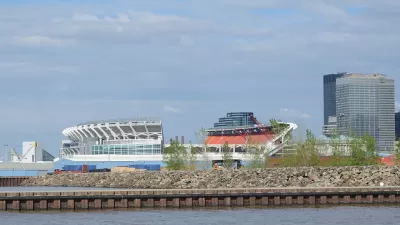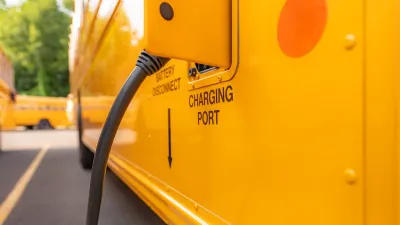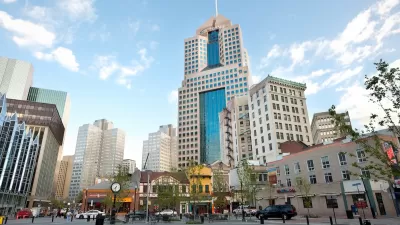A garden in Pittsburgh has become the model for a movement to combine environmental reclamation with economic development.
The long-abandoned coal mine where the Pittsburgh Botanic Garden now sits was not, at first, considered a high priority for rehabilitation. Though plagued by high concentrations of aluminum in its central pond, the site didn't meet the criteria to be classified as "brownfield."
But now the garden is one beneficiary of a new $30 million state grant program that is taking a different approach to environmental remediation: targeting sites that have the greatest potential for economic development, rather than the greatest ecological need. Where reclamation programs have traditionally sought to "simply restore damaged land to its original condition and eliminate public health hazards," a 2016 Congressional authorization allowed states like Pennsylvania to put clean-up funds toward community development projects on the site.
The botanic garden, which serves 25,000 visitors a year, is one of 14 pilot projects throughout Pennsylvania to receive this funding. An underground treatment system to de-acidify the pond has already been implemented, and the grant monies will be used to create new curated gardens and recreational areas for public access.
FULL STORY: Where coal was once mined, a garden now thrives

Alabama: Trump Terminates Settlements for Black Communities Harmed By Raw Sewage
Trump deemed the landmark civil rights agreement “illegal DEI and environmental justice policy.”

Study: Maui’s Plan to Convert Vacation Rentals to Long-Term Housing Could Cause Nearly $1 Billion Economic Loss
The plan would reduce visitor accommodation by 25% resulting in 1,900 jobs lost.

Planetizen Federal Action Tracker
A weekly monitor of how Trump’s orders and actions are impacting planners and planning in America.

Wind Energy on the Rise Despite Federal Policy Reversal
The Trump administration is revoking federal support for renewable energy, but demand for new projects continues unabated.

Passengers Flock to Caltrain After Electrification
The new electric trains are running faster and more reliably, leading to strong ridership growth on the Bay Area rail system.

Texas Churches Rally Behind ‘Yes in God’s Back Yard’ Legislation
Religious leaders want the state to reduce zoning regulations to streamline leasing church-owned land to housing developers.
Urban Design for Planners 1: Software Tools
This six-course series explores essential urban design concepts using open source software and equips planners with the tools they need to participate fully in the urban design process.
Planning for Universal Design
Learn the tools for implementing Universal Design in planning regulations.
Caltrans
Smith Gee Studio
Institute for Housing and Urban Development Studies (IHS)
City of Grandview
Harvard GSD Executive Education
Toledo-Lucas County Plan Commissions
Salt Lake City
NYU Wagner Graduate School of Public Service





























